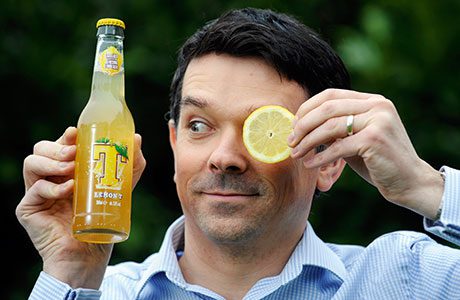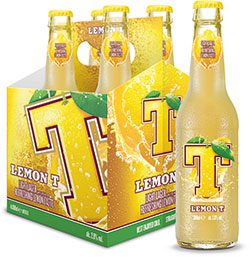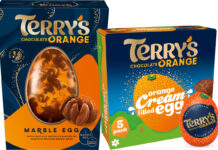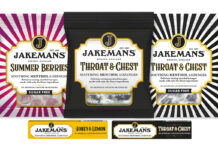
IN some ways, mixing beer with a non-alcoholic fruit flavoured liquid, and in the process reducing its alcoholic strength, isn’t new, people have been making shandies and lemon-tops, or ordering them in pubs, for many years.
But with more of the big beer players piling into making ready-to-drink, fruity beer mix products, often lemon-flavoured and frequently between 2% and 3% ABV (although there are also alcohol-free versions) it looks as if we could be heading for a summer when moderation comes into its own.

And moderation, it appears, is very important. Many of the marketing teams see it as what marketing people all over the world call the “key driver”. In other words it’s the main reason that consumers will want to use, and buy, the product.
Scotland’s biggest beer brand Tennent’s added its own lower-alcohol, fruit-flavoured beer to the mix when 2.8% ABV Lemon T started hitting the wholesalers shelves a couple of months ago.
Last month Lemon T began to be promoted as a “light lager with a refreshing lemon taste”.
So what led Tennent’s to launch its lemon line, and put its name, or at least the shorthand version, to it.
Tennent Caledonian Breweries marketing director Paul Condron acknowledged that the Glasgow-based Scottish beer giant hadn’t been first to market with a fruity, low-alcohol product but suggested there were many examples where the most successful products in a particular category hadn’t been the first on the scene.
“Lower-ABV beer is definitely a growing sector,’ he said.
“We looked at the numbers, 68% growth in value and 45% growth in volume over the last three years.
“And research we had pulled in suggested something like 63% of consumers are open to trying something new in the low-alcohol segment.
“So, while it’s a small category, it’s definitely emerging and people are a bit more interested in it than a few years ago.”
Lemon had become established as a popular flavour and pretty quickly the decision was taken to go with lemon for starters, with the possibility of other flavours to follow.
It also gave a platform for a pun. The Lemon T name is part of a strategy, he said, to introduce some fun to a market that had been fairly serious.
But, that being said, he reckons flavour isn’t the most important consideration for consumers.
The brand hopes to appeal to women, among others. But the main targets are 30-something males. The reason in one word? Moderation. Guys these days, it seems, will often look for something with a lower ABV, especially on weekday evenings when, for example, they may have just been to the gym.
With Lemon T, he reckoned, the firm’s brewers had come up with a great balance of fruity refreshment and recognisable beer character, and in consumer testing it had performed well.
Martin Porter, managing director, off-trade at Heineken UK, is bullish about the future of lower-alcohol beer.
“We believe the moderation segment could represent as much as 5% of total cider and beer volumes in the UK within 10 years,” he said
Heineken has added two new varieties to its Foster’s Radler portfolio. Earlier this year the company said that, since its debut last spring, the Cloudy Lemon variety (2% ABV) had sold 17m bottles. Radlers is now also available in 440ml cans.
And it has also been keen to bring some fun to the scene. Foster’s Radler now has its own ad in the Foster’s Aussie agony uncles series of TV commercials.

Carlsberg UK’s recently released Carlsberg Blackcurrant (2.8% ABV), follows last year’s launch of Carlsberg Citrus. Listings include Londis, Booker, Bestway, Batleys, Landmark and Todays.
It plans a £3m summer ad campaign to back the launch.





















